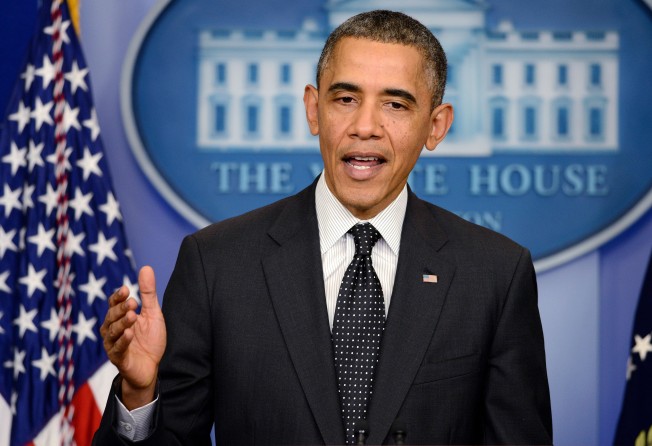US Senate's curb on filibusters over presidential appointments branded 'dangerous'

The Democratic-controlled US Senate, in a historic and bitterly fought rule change, have stripped Republicans of their ability to block Barack Obama's judicial and executive branch nominees by limiting the use of filibusters.
Obama will get a short-term lift, but over the immediate horizon, the strong-arm move could usher in an era of rank partisan warfare beyond even what Americans have seen in the past five years.
For the foreseeable future, Republicans, wounded and eager to show they have not been stripped of all power, are likely to unify against the Democrats who humiliated them in such dramatic fashion.
"This is the most important and most dangerous restructuring of Senate rules since Thomas Jefferson wrote them at the beginning of our country," declared Republican Senator Lamar Alexander.
The action fundamentally altered the way Congress' upper chamber has worked since the mid-19th century by making it impossible for a minority party, on its own, to block presidential appointments, except those to the US Supreme Court.
The change in the filibuster rule does not apply to legislation, which can still be held up by a handful of senators.
The Senate filibuster is a legislative delaying tactic using rules intended to protect the sanctity of debate in the Senate. Any senator recognised to speak may do so for as long as he or she likes.
That means opponents of legislation may hold the floor and "debate" for as long as he or she can manage, to prevent a vote on that legislation.
One beneficiary is likely to be Representative Mel Watt, whose nomination to take over the agency that regulates mortgage finance giants Fannie Mae and Freddie Mac was being blocked by Republicans. But the immediate spark was Democratic frustration at Republican use of the filibuster to block Obama's appointments to the US Court of Appeals for the District of Columbia Circuit, considered the nation's second most important court after the Supreme Court.
The action will undoubtedly come back to haunt Democrats the next time they lose the Senate and the White House simultaneously.
Getting rid of it was considered so momentous and divisive that it was dubbed the "nuclear option" in the Senate.
On a nearly party-line vote of 52-48, the Senate reduced from 60 to 51 the number of votes needed to end procedural roadblocks.
Obama, a former senator, praised the action, calling the filibuster "a reckless and relentless tool to grind all business to a halt."
On Thursday afternoon, as one Republican after another went to the Senate floor to lament the end of one type of filibuster, they voted against cutting off debate on the annual defence policy bill, a measure that has passed with bipartisan support every year for decades.
"Today's historic change to Senate rules escalates what is already a hyperpartisan atmosphere in Washington, which is already preventing Congress from addressing our nation's most significant challenges," said former senator Olympia Snowe, a Republican, and Dan Glickman, a Democrat, in a statement from the Bipartisan Policy Centre.
Additional reporting by Reuters